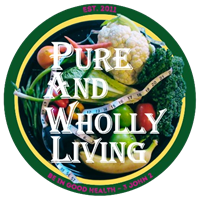When it is hotter than normal, for several consecutive days, you are experiencing what is called a heat wave.
Heat is one of the leading weather-related killers in the United States, resulting in hundreds of fatalities each year. In addition, heat can be very taxing on the body no matter what your age.
Everyone can be vulnerable to heat, especially young children and infants, the elderly, people with chronic illnesses, and pregnant women.
Extreme heat also impacts our infrastructure – from transportation to utilities to clean water and agriculture. High heat can deteriorate and buckle pavement, warp or buckle railway tracks, and exceed certain types of aircraft operational limits. Electricity usage increases as air conditioning and refrigeration units in homes and offices work harder to keep indoors cooler. Transmission capacity across electric lines is reduced during high temperatures, further straining the electrical grid. Water resources are also strained as conventional power plants require large quantities of water for cooling and crops may need increased water consumption, and people increase water consumption to stay hydrated and cool. Heat can have lasting impacts as crops may be damaged, reducing production which leads to short supply and or increased cost to the farmers and consumers.
Here are some tips to help keep you and your loved ones healthy and safe during a heat wave:
- Stay hydrated. Don’t wait until you are thirsty to drink. Avoid sugary, caffeinated or alcoholic drinks. Avoid icy beverages because they can cause stomach cramps.
- Look before you lock. Never leave children or pets unattended in a vehicle. When it is 90^ or higher outside, it can be 130^ or higher in your vehicle. This is way too hot! Therefore, it’s best for everyone to get out of the vehicle. Or, simply keep the air-conditioning cool while someone stays in vehicle with children and/or pets.
- While working outdoors, take breaks in the shade as much as possible so that your body has a chance to recover, as heat exhaustion can be fatal.
- Use your stove and oven less.
- Cut down on exercise during the heat.
- When indoors, stay in an air-conditioned place as much as possible.
- Don’t use an electric fan when the indoor air temperature is over 95°F. Using a fan can be more harmful than helpful when indoor air temperatures are hotter than your body temperature. Fan use may cause your body to gain heat instead of losing it. Focus on staying hydrated, taking a cool shower or bath to cool your body, shutting out the sun and heat with curtains, and moving to an airconditioned place to cool off.
- When outdoors, protect yourself from the sun by wearing a wide-brimmed hat, sunglasses, and sunscreen with UVA/UVB protection.
- Wear appropriate clothing: Choose lightweight, light-colored, and loose-fitting clothing.
- Eat healthy food and get enough sleep to help you deal with stress.
Lastly, if you feel that you or your loved one is experiencing heat exhaustion, move to a cool place, loosen clothing, put cool, wet cloths on the body, use misting and fanning, or take a cool bath, and sip water.
If the condition is a heat stroke — the most serious medical condition caused by extreme heat — immediate emergency treatment may be necessary. It can result in death without immediate medical attention.
When in doubt, call for medical assistance right away!
Sources: weather.gov; American Red Cross
